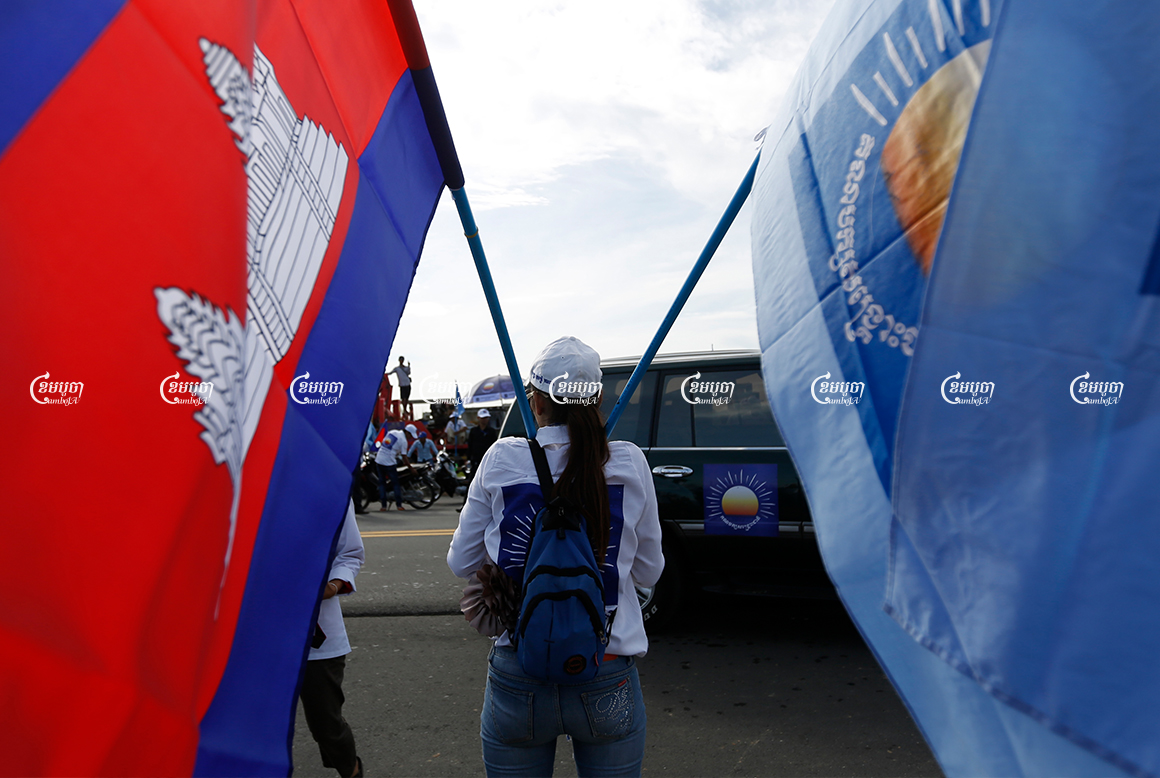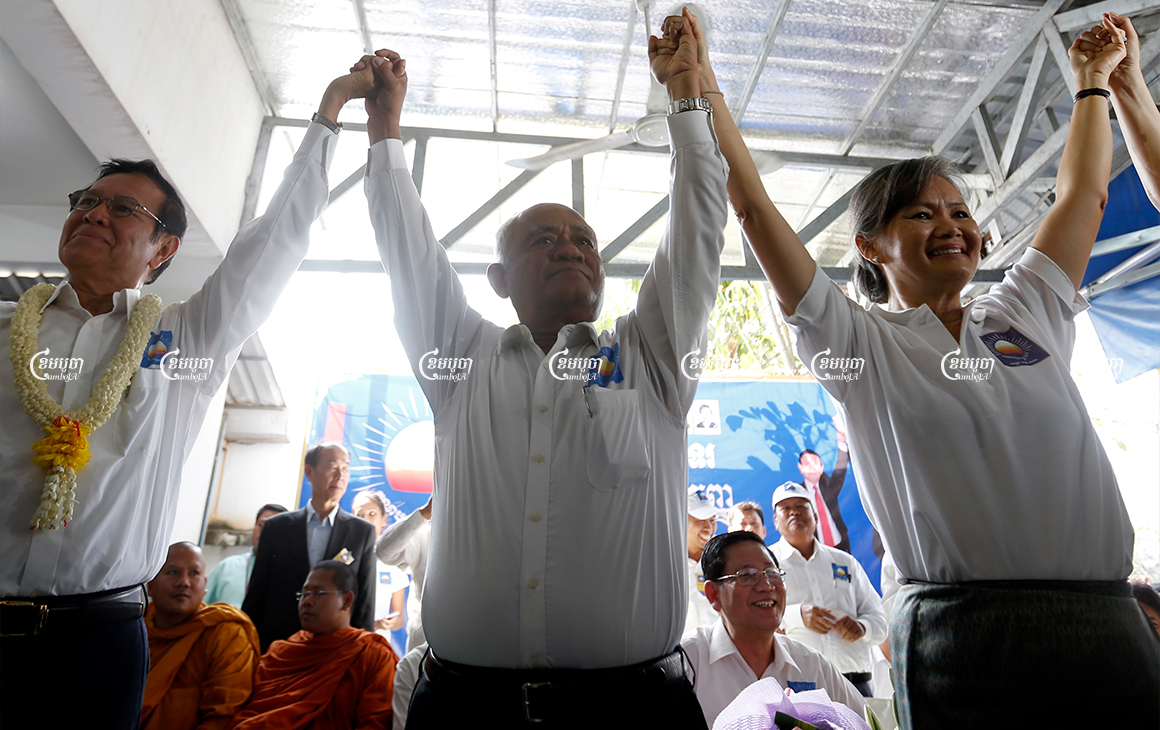Two more former CNRP members have requested the reinstatement of their political rights, bringing the total number to 24 thus far, as candidates prepare for the commune elections next year.
Former CNRP deputy president Pol Ham, and Phan Chansak, a committee member who is also Kem Sokha’s lawyer, submitted a letter on May 17 to the Ministry of Interior requesting that they be permitted to return to politics. The pair is among more than 100 senior officials who in 2017 were barred from politics for five years.
The request comes one day after Prime Minister Hun Sen called for the armed forces to be on high alert and ready to crackdown on any opposition-related movements that could interrupt the 2022 commune elections.
In his May 16 speech marking the 76th anniversary of the national police, Hun Sen said the former opposition CNRP, which he calls a “rebel group,” will target the next election to disrupt the “process of this important political event.”
“Therefore, the future situation, [opposition movement] whether more or less, directly, or indirectly, it definitely will have a real impact on internal security,” he said, adding that the threat requires the national police force to continue to strengthen its commitment to perform its duties.
“Stabilize the security, prevent and suppress in a timely way the activities of the rebels, without allowing them to achieve these evil plans,” he said.
Political observers said that Hun Sen’s statement will lead to further persecution of former opposition activists and leaders in the country and scare off any efforts to build up a credible opposition movement in time for the election.
Pa Chanroeun, president of the Cambodian Institute for Democracy, said that the prime minister’s statement is a message that there will be no political compromise.
“If he says this is clearly politically motivated, the repression and arrests as well as the persecution of former opposition activists and leaders could be more recent, especially in the run-up to next year’s commune elections,” he said, adding that the absence of a credible opposition party will affect the democratic process in Cambodia.
“In a democratic society, there must be a credible opposition party as a rival to the ruling party. The number of parties to join the next election is just a figure… and it is hard to say the country is adopting the democratic system” he said.

CNRP officials and members have been under fire since the party was dissolved by the Supreme Court in 2017 after having made significant gains in national and commune elections.
More than 150 party members and affiliates are defendants in mass trials that have been criticized for inadequate due process. After the dissolution, 118 of the party’s senior officials were banned from politics for five years. Some observers have criticized the “rehabilitation” process, saying it’s a way for the government to provide a veneer of credibility for the upcoming election. Among those who have requested and received “rehabilitation,” some have gone on to start or join smaller opposition parties, while others have joined the CPP.
Political analyst Meas Ny said requesting “rehabilitation” is the right of an individual and it doesn’t mean that all will join a political party again.
“Some of them may just want to have political freedom. But for those who will enter politics by creating their own party to join the election, it will only disintegrate the democratic forces,” he said.
Ny said Prime Minister Hun Sen’s claim that the former opposition party would obstruct the election process is impossible as the party was dissolved.
Sam Rainsy, who lives in self-exile in France to avoid convictions widely believed to be politically motivated, told CamboJA by email that an election that requires a crackdown on the activities of the opposition is not a true election.
“No one will be fooled, inside or outside Cambodia, if the CNRP is not allowed to take part,” he said.
“The CNRP has the support to take part in and win large gains in the commune elections. In that sense, Hun Sen’s attempts to suppress the party are a failure and will always fail,” he said.
Cambodia is to hold its commune elections on June 5, 2022 and the general elections in July 2023.
Currently, there are four parties headed by former CNRP members—including the newly established Cambodia Reform Party (CRP) led by Ou Chanrath.
Chanrath said the party is preparing structures to be ready for joining the upcoming commune election.
“We understand that grassroots voices are important to protect the interests of the people. We see that after the CNRP was dissolved, people still have loyalty to the party but now it has been three years and people need one opposition party that can compete with the ruling party to protect their voice.
Chanrath said Phan Chansak will join the Cambodia Reform Party. Pol Ham could not be reached for comment.
National Election Committee (NEC) spokesman Hang Puthea said the NEC will begin updating the voter list in October.
“NEC has prepared for the commune elections process as normal, but it’s too early to talk about the procedure because we still have a long time to go,” he said.
Korn Savang, coordinator observer at the election monitoring NGO COMFREL, said COMFREL is monitoring the preparation of the voter list and looking at the legal aspects of political party law to find any challenges.
“We do not have plans yet to decide whether to participate in election monitoring as we have a group of civil societies that will decide. We will participate if we find it is a fair and free election,” he said.








